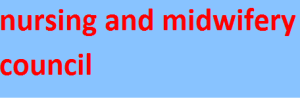nursing and midwifery council
nursing and midwifery council

About the South African Nursing Council
Setting and Monitoring of Standards
- The Nursing Council is tasked with establishing, enhancing, and controlling the conditions, standards, and quality of nursing education and training in accordance with Section 3 of the Nursing Act of 2005.
- The administration of nursing examinations, the awarding of diplomas and certificates, the monitoring of assessments conducted by accredited institutions, and the accreditation and inspection of nursing education institutions are all covered by Section 4 of the Nursing Act.
- The Nursing Act of 2005, Section 58(1)(f), permits the establishment of regulations (education and training regulations) defining the requirements and qualifications necessary for a person to become registered as a nursing practitioner.
The South African Nursing Council monitors nursing standards in the following ways:
- allowing nurse practitioners to practice as nurses by registering them;
- accreditation of brand-new nursing education programs and institutions;
- inspection of clinical facilities and nursing education institutions;
- constantly evaluating nursing education and training to meet South Africa’s requirements, and advising and directing the nursing profession regarding the implementation of the policies governing nursing education and training.
The South African Nursing Council’s goals are to:
- serve and protect the public in matters pertaining to nursing services in particular and health services in general;
- fulfill its duties in accordance with the Minister’s national health policy and in the public’s best interests;
- encourage the Republic’s residents to receive nursing care that adheres to universal standards and values;
- within the scope of this Act and any other applicable laws, establish, improve, and control nursing education and training conditions, standards, and quality;
- keep practitioners’ standards of professional conduct and practice within the scope of any applicable law;
- ensure that all stakeholders are kept informed about nursing standards, particularly those pertaining to professional
- conduct and education as well as practice, both within and outside the Republic;
- advise the Minister regarding nursing-related amendments or adaptations to this Act;
- be open and accountable to the public when it comes to achieving its goals and carrying out its duties;
- uphold and uphold nursing’s professional and ethical standards; and help the Council achieve its strategic goals.
The Nursing Council must:
Take into account the Minister’s national health policies in all of its decisions and put those policies into practice for nursing;
enter, remove, or restore a person’s name from the register if authorized by this Act;
conduct examinations appoint moderators and examiners, and award diplomas and certificates for those examinations;
conduct inspections and investigations of health establishments, nursing education programs, and nursing education institutions to ensure compliance with this Act and the Council’s rules and standards;
notify the appropriate statutory body of any non-compliance discovered during the inspection and investigation described in (d);
make sure that people who are registered under this Act treat people who use health services in a way that respects their constitutional rights to human dignity, physical and mental integrity, and equality, and that people who don’t do so will be disciplined;
in order to safeguard the public’s interests, investigate complaints against registered individuals and take appropriate disciplinary action in accordance with the provisions of this Act;
within thirty days of the conclusion of such disciplinary action, published in the Gazette the specifics of the unprofessional conduct as well as the names and qualifications of the individuals against whom disciplinary action was taken in accordance with this Act;
make sure, in accordance with the requirements, that a public register of individuals registered under this Act is made available;
investigate and take action against nursing education institutions that are not accredited;
If the education or training provided does not meet the prescribed requirements, a nursing education institution or nursing education program should withdraw or suspend accreditation and notify the relevant licensing authority;
- (i) the scope of practice of nurses;
- (ii) the circumstances in which nurses are permitted to practice their profession;
- (iii) the actions or omissions for which the Council may take legal action against any registered person under this Act; and
- (iv) the requirements that must be met for any nurse to maintain the prescribed level of competence;
determine the fees required for a license or registration under this Act;
monitor the assessment conducted by providers of education and training, including the recognition of prior learning, register constituent assessors and moderators, and award diplomas and certificates in accordance with this Act and any other applicable laws;
be regarded as a quality assurance representative of education and training in accordance with section 5 of the South African Qualifications Authority Act, 1995 (Act No. 58 of 1995), which covers all nursing credentials;
- submit to the Minister—
(i) within six months of the Council’s appointment, a five-year strategic plan outlining the Council’s plans for achieving the goals set forth in this Act; - (ii) every six months, a report that the Council compiles while carrying out its duties under this Act on matters of public importance and the state of nursing; and
- (iii) a report every year within six months of the financial year’s conclusion;
ensure that sections 23 and 24 of the annual budget are followed and that the Council operates within the budget’s parameters, and carries out any additional duties that may be assigned.
Click here to register at SANC
Click here for South African Nursing Colleges and Schools Application 2023-2024
RELATED LINKS